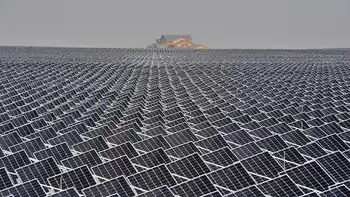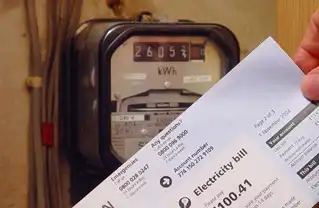Time for Green Act in Ontario?
By Toronto Star
Electrical Testing & Commissioning of Power Systems
Our customized live online or in‑person group training can be delivered to your staff at your location.

- Live Online
- 12 hours Instructor-led
- Group Training Available
The legislation they propose would be modeled after a similar act in Germany, which by giving priority to renewables such as wind and solar has become a global powerhouse in the sector.
Germany is a country about a third the physical size of Ontario, but it has managed to put more renewable power on its grid than all nuclear, fossil fuel and renewable capacity in Ontario combined. In doing so, it has created employment for 230,000 people and built a thriving industry.
Environmentalist David Suzuki says Premier Dalton McGuinty is a forward-looking leader, but like many politicians he's cautious about introducing major change. The result is that the province, while it has made efforts to improve energy efficiency, encourage conservation and put more renewable power on the grid, is still approaching green-energy development with half measures.
One example is the introduction of new rules last month that will have the effect – intentional or not – of slowing down investment in and development of renewable power projects under Ontario's wildly successful standard-offer program, which pays out a premium to small-scale producers of green energy.
"He's got to take the step off the edge of the cliff and really make the commitment," says Suzuki, adding there's still too much "old Ontario Hydro" mentality calling the shots and putting greater priority on big, expensive mega-projects – such as new nuclear plants.
"This gives the illusion McGuinty is acting strongly, that jobs are being created and all that, but the new millennium is not about mega-projects but about diverse, small-scale projects. And that's much more stable than putting all your eggs into a new Darlington."
Kristopher Stevens, executive director of the Ontario Sustainable Energy Association, says the purpose of a Green Energy Act would be to create a high-level framework that streamlines the development of renewable energy.
Currently, different pieces of legislation cover different aspects of development and several ministries – environment, energy, natural resources, agriculture and public infrastructure renewal, to name a few – each have their hand in the pot. The proposed act would focus development efforts through a single lens to streamline green-energy development.
Stevens, whose group is a lead proponent of the act, says the aim is to have "all the pieces aligned and pulled in the same direction."
If done properly, it would create green-collar jobs, re-energize Ontario's struggling manufacturing sector, empower rural communities and native groups and make the electricity system more diverse and robust.
A big question is whether there is a conflict of vision going on between the premier's office and the Ontario Power Authority.
The Energy Ministry has set targets for renewables and nuclear power to help guide the authority's 20-year power system blueprint for the province.
Environmentalists argue the power authority is treating those targets as a maximum for renewables and a minimum for nuclear, whereas they say the opposite is what the government intended.
There's $60 billion in planned investments on the line over the next 20 years, and Stevens says most of it looks like it will be invested in the system we already have, rather than the vision of what it could be.
Deb Doncaster, who's heading up Ontario's newly created Community Power Fund, says there needs to be a "reclaiming of authority" by the premier so conservation, renewables and other green technologies can form the basis of an industrial strategy for the province.
Energy consultant Marion Fraser, a former senior adviser to the Minister of Energy, says market forces alone won't get us there.
"The electricity system has evolved over 100 years toward large central plants and we need to re-orient the system. Without something like a Green Energy Act to actually provide the legislative framework, it just won't happen."
The timing of the proposed green legislation is prescient, not just because oil is near $130 a barrel or talk of a carbon tax has captured headlines – although this helps. It's also because the much-touted nuclear industry "renaissance" has been sidetracked by escalating costs and construction setbacks. It means the economic argument for choosing nuclear, as outlined in the power authority's 20-year plan, likely underestimates the true cost of building a new plant today.
Suzuki says the Premier, if he's not aware of the risks involved with the province's current plan, should be. At the same time, he says the Ontario government needs to stop thinking that mass deployment of renewables is a losing strategy.
"Anybody who says that it puts you at a disadvantage is totally talking bull****," says Suzuki.
McGuinty must know that if the province doesn't take this plunge, some other neighbouring jurisdiction will, motivated by the desire to eat Ontario's economic lunch.
New York Times columnist Thomas Friedman wrote about how "amazing" it would be if politicians faced our energy problems head on and told the truth.
"Every decade we look back and say: 'If only we had done the right thing then, we would be in a different position today'," he wrote.
Germany did it. Japan did it. The question is whether Ontario's current government has the guts to make a tough call, and act on it with conviction.











